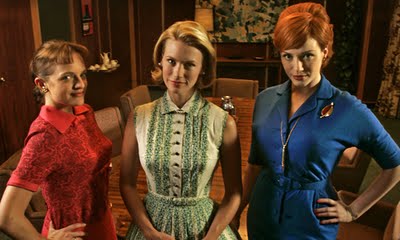This guest post by Olivia London-Webb appears as part of our theme week on Female Friendship.
Long before the “groundbreaking” Frozen, where sisters save each other, and after the classic Thelma and Louise, where saving your sister means driving off a cliff to your death, somewhere in the middle we have the fairytale that is Practical Magic.
Oh how I wish I were a witch. And really, who doesn’t? A proper broom-riding, black hat wearing, potion making, spell casting, bad-ass witch. Not surprising that Practical Magic is one of my go-to movies. It just makes me feel better. It is one of those movies that I can watch again and again and it stands the test of time. Just the look of this movie is enchanting enough–house on the water, that kitchen, with the garden and the conservatory–swoon. For me, the house and grounds becomes its own character. The house brings us into the world of this family and all of its mess. Then we get to look around inside, watching the story unfold and straining to see around corners and down hallways to all of the witchy interior design details. Hanging herbs are drying everywhere, there is fruit in bowls, bell jars, and candles–and no television or computers. Undoubtedly there is a lingering smell of brownies in the air. That house is my happy place. One of the best things about this house, as with any, are the people in it. Their world is all about family. This is a love story to be sure, but one about sisters.
We begin our story with the not uncommon theme of slut-shaming. The puritanical townspeople of old were tired of a woman having any type of sexuality and tried to hang her. She magically made the hanging rope snap and was instead banished to a remote area. She then proceeded to build her own lighthouse, cultivate the land, and give birth on her own. She sounds like a bad-ass to me. However, she was pissed. Her man never showed and she cast a spell to never fall in love again, and the spell turned into a curse. Don’t we all have an aunt like that? So now we have a family of bad-ass women. Only sisters. Two a generation. Clearly the curse destroys male chromosomes. Yes there are men who help move the plot along, but they are not the real story here.
This is a movie about women. Strong women. Sisters. Two sisters who would go through hell for each other, raised by two sisters who already have. I love that the sisters could not be more different. The sisters seems to have one “slutty” one, and one “smart.” There is also the–ever present in “chick movies”–Maiden, Mother, and Crone archetype. Either you are a slut, a mother, or an old aunt. These older aunts follow suit: Aunt Frances (Stockard Channing) is “slutty,” and Aunt Jet (Dianne Wiest) is “smart.” Then we have the heroines of our story: Gillian (Nicole Kidman) is “slutty,” and Sally (Sandra Bullock) is “smart.” There is no shortage of stereotypical pandering. The trouble-causing red-head who is sleeping around gets into trouble with the wrong man. Slut-shaming again. The redemption is, however, that the savior is her sister. The smart brunette. Ahhh.
Like all sisters should, if the phone rings in the middle of the night, and you need to get on a plane, you do. You know that there is drama, and then there is real need. So she scoops her sister up and off they go. This is where things get interesting. The boyfriend, Jimmy (Goran Visnjic), doesn’t agree with them leaving and abducts them both. One of my favorite parts is the eye communication that happens between Sally and Gilly in the rearview mirror of the car. We have all done that–caught our sister’s eye so that we can say something, but not out loud. I love that they translated that so well in this scene. Once you get this skill down, you can communicate whole thoughts and emotions, with only an eyebrow raised correctly. Only sisters can do this.
Next is something that we have all thought about for our sisters. We have all wanted to, at one time or another, kill that asshole boyfriend/husband bury him in the backyard and then have margaritas. Sure the first time you kill him, you feel a bit bad and bring him back. Then, wait…he is STILL evil and awful, so you need to kill him again. Then you get to make out with a beautiful cop who says it wasn’t your fault and can prove it with jewelry. Done and done.
This is why I love this movie. I have two real sisters in my life. One born and one chosen. I have strong powerful women everywhere I look–my friends, my mother, my sister-in-law, and my mother-in-law. I would go through hell for them. They would go through hell for me. What we are more than anything else are each other’s mirrors. We need to say and believe more of the good things about each other. I expect my sisters to tell me if that weird black hair is sprouting on my chin again. I will tell you if that man is an asshole and you deserve better. I know that no matter the distance or time you will be there. I will too. I know that if I pick up the phone in the middle of the night, my sisters would be there. I can feel it when you are crying in an airport because of a broken heart. You can tell when I am hiding the truth, even from myself. Our sisters make us better. My dream is to be those old ladies in a house together, cackling late into the night about the adventures that they have had, and the adventures on the way. Even in a fairytale like this, we see that we are all important, and that thankfully, there is a little witch in all of us.
Olivia London-Webb writes for herself as therapy. When not writing she likes to cook, drink, stare at art, and chase her children.




